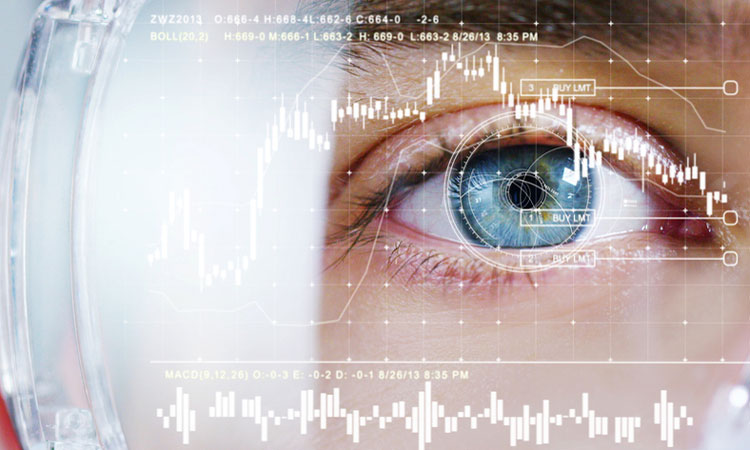Leveraging Our Biostatistics Services for Successful Medical Device Validation and Clinical Trials
As a medical device company, your goal is to develop innovative and safe products that can make a positive impact on patient care. A crucial aspect of achieving this goal is the rigorous validation of your therapeutic product and a successful navigation of the regulatory approval process. This includes avoiding pitfalls that may occur both along the way and after post-market approval.
Our biostatistics services play a pivotal role in supporting medical device start-ups and SMEs throughout the clinical validation process including all aspects of clinical trials and post-market surveillance.
Calculated biostatistics approaches are practical importance to the success of any class II and class III medical device approval project. In some cases they can be helpful for class I devices as well. Well-chosen biostatistics methodologies applied in the optimal manner contribute a great deal to the success of your medical device development journey.

Optimising Clinical Study Design:
Effective study design is the cornerstone of a successful clinical trial. Our Biostatisticians bring their expertise to collaborate with your team, tailoring study designs that align with your device’s unique characteristics and intended use. By carefully selecting appropriate endpoints, estimands and patient stratification groups, expert biostatistics services ensure that your trial produces reliable and meaningful results.
Sample Size Determination:
Determining the right sample size is crucial for the statistical power of your clinical trial and this translates to the applicability of your results. Biostatisticians employ specialised methods to calculate the optimal sample size based on your device’s anticipated effects and many other factors. Sophisticated simulation and algorithmic techniques using the right data can ensure accuracy. By avoiding insufficient sample sizes or unnecessary enrolment, our dedicated biostatistics services help you strike the right balance between cost-effectiveness and obtaining statistically robust results.
Rigorous Statistical Methods and Analytics Techniques for Medical Device Validation:
Statistical analysis of the data from properly designed studies provides crucial evidence regarding the safety and effectiveness of a novel medical device, helping you make informed decisions about its future development and commercialisation.
We employ a wide range of statistical analysis methods and techniques individually tailored to suit different types of medical devices:
- Survival analysis: techniques such as Kaplan-Meier estimation, log-rank tests, and Cox proportional hazards models to analyse time-to-event data for efficacy or adverse events.
- Biostatistical modelling: We employ various regression models, including linear regression, logistic regression, and mixed-effects models, to assess the relationships between device characteristics, patient factors, and clinical outcomes.
- Non-inferiority and equivalence testing: When establishing non-inferiority or equivalence between your device and a comparator, we apply appropriate statistical methodologies, including sample size calculation and statistical testing with predefined margins to provide a comprehensive overview of the device’s performance.
- Meta-analysis: In cases where combining results from multiple studies is required for parameter estimation, we utilise meta-analysis techniques to synthesise and analyse data from various sources. Meta-analysis can play a key role in accurate sample size estimation and both Bayesian and frequentist methods can be used, dependent on study specifics.
- Reliability and repeatability analysis: Bland-Altman plots, ICC sensitivity, specificity and many other methods for evaluating diagnostics tests.
Handling Missing Data and Sensitivity Analyses:
Missing data can occur in clinical trials, and we have expertise in handling such situations. It is important to account for expected drop-out rates and non-responses in early clinical trials design. Our biostatisticians employ advanced imputation methods and sensitivity analyses to address missing data, ensuring the robustness of your trial results.
Ensuring Data Quality and Integrity:
Outsourcing data related tasks to an independent CRO from the study design stage to study completion has several advantages to the unbiasedness of your results, which makes them more actionable. Throughout your clinical trial, biostatisticians play a vital role in ensuring the quality and integrity of your data. Rigorous data monitoring techniques can identify any potential data anomalies or inconsistencies. By maintaining data integrity, independent biostatisticians contribute to the reliability and credibility of your study results.
Streamlining Regulatory Compliance:
Navigating the regulatory landscape can be challenging for smaller medical device companies. Biostatisticians assist you in generating comprehensive statistical reports that accompany your regulatory submissions. These reports highlight the statistical methods employed, the results obtained, and their clinical significance. By providing statistical expertise during interactions with regulatory bodies, such as the FDA, MRHA, and MDR biostatisticians address any statistical questions or concerns that may arise and justify methods more fully where required.

Advantages of a Biostatistics Focus to Your Device Development
1. Cost and Time Efficiency: Biostatistics services optimise your study design and sample size determination, leading to cost savings and shorter timelines. This allows you to bring your medical device to market faster while ensuring its safety and efficacy
2. Reliable Decision-Making: Biostatisticians provide objective and data-driven insights, enabling you to make informed decisions about your medical device’s development and commercialisation. . Quality data analysed in the correct way can provide you with crucial insights into design flaws that need redressing and the potential for adverse events before they become a liability. This reduces the risk of costly errors or delays in your regulatory approval process.
3. Increased Market Competitiveness: By leveraging outsources biostatistics services, you demonstrate a commitment to robust clinical validation and reliable data analysis. This instils confidence in investors, regulatory authorities, and potential partners, enhancing your overall market competitiveness.
Outsourced biostatistics services are a valuable asset for small medical device companies pursuing successful clinical validation and trials. From optimising study design to ensuring data quality and streamlining regulatory compliance, biostatisticians provide the necessary expertise to enhance the reliability and efficiency of your development process. By partnering with Anatomise Biostats, you can confidently navigate the complex landscape of medical device development, bringing innovative and safe solutions to patients in a timely manner.

Take advantage of our Complimentary Initial Consultation to discuss your needs
Why Choose Our Biostatistical Services for Your Medical Device Trial?
Expertise in Study Designs and Statistical Analysis for Medical Device Validation
Our team of biostatisticians possesses specialised expertise in designing study protocols, statistical analysis plans, and conducting statistical analyses specific to the validation of various types of medical devices. We have experience in a wide range of study designs and statistical techniques, ensuring that your trial is designed and analysed using the most appropriate methodologies for your specific device.
Customised Study Designs for Different Types of Medical Devices
We understand that different types of medical devices require tailored study designs to effectively evaluate their safety and efficacy. Our biostatistical services offer customised study designs to effectively evaluate the safety and efficacy of different types of medical devices:
- Randomized controlled trials (RCTs) with control and intervention groups can be designed to assess the safety, effectiveness, and long-term performance of implantable devices.
- Diagnostic accuracy studies, including sensitivity, specificity, and receiver operating characteristic (ROC) curve analysis, are developed to evaluate the performance and accuracy of diagnostic devices.
- Single-arm or randomized trials are designed to assess the therapeutic benefits and outcomes of therapeutic devices compared to standard of care or placebo, employing appropriate endpoints and statistical approaches.
These tailored study designs ensure that your specific medical device is evaluated in a comprehensive and relevant manner.
Our biostatisticians will work closely with your team to customise the study design that best fits your device’s specific characteristics and intended use, ensuring robust and reliable results. By choosing our biostatistical services, you gain access to a team of experts experienced in designing study protocols and conducting statistical analyses for a variety of medical device types. We offer customised study designs specific to your device’s characteristics, employing appropriate statistical analysis methods and techniques tailored to different types of medical devices. Our expertise in handling missing data and conducting sensitivity analyses ensures the reliability and validity of your trial results. Contact us today to discuss how our specialized biostatistical services can support the validation of your specific medical device with the appropriate study designs and statistical analyses.
Have Questions?
We will be delighted to deliver you a prompt response.

